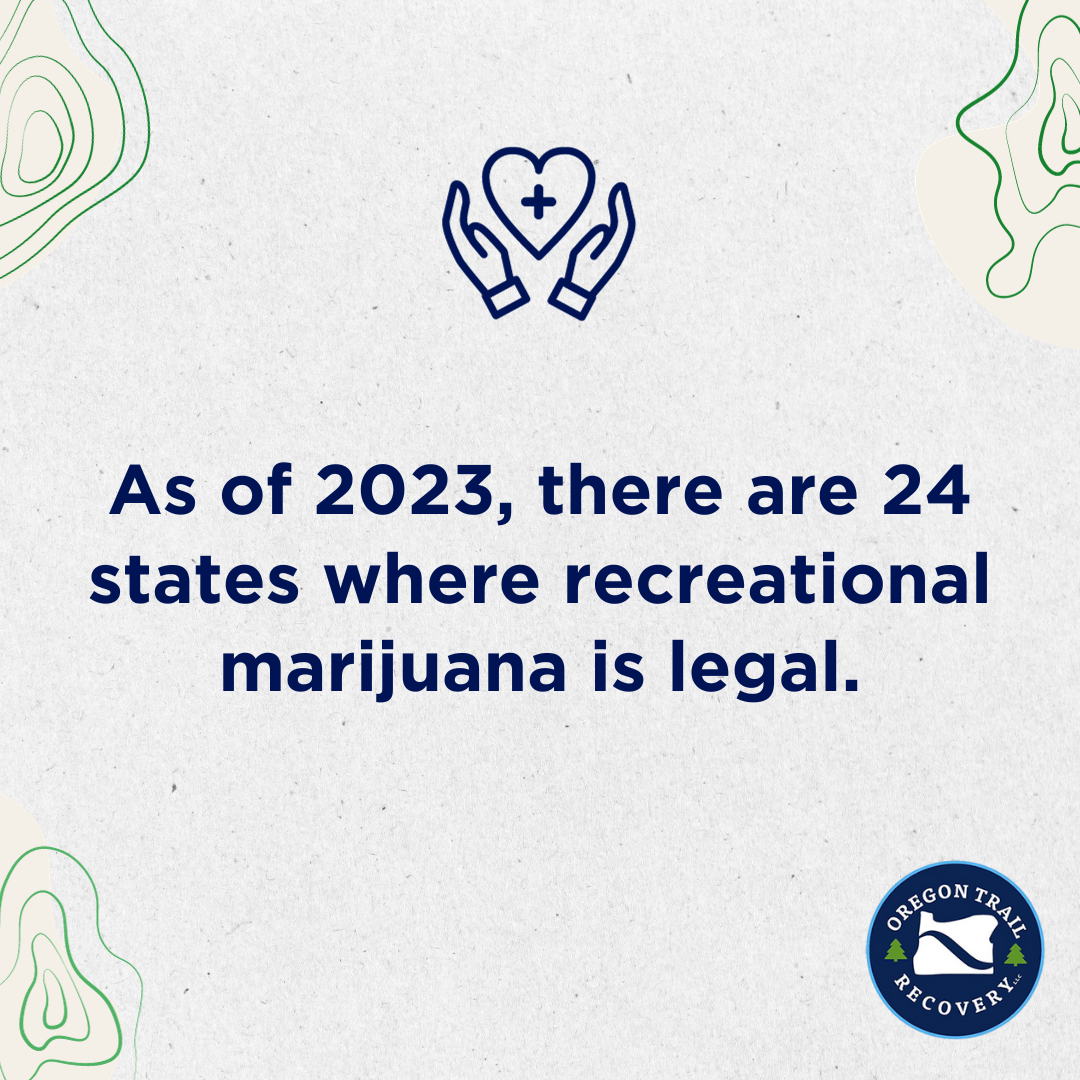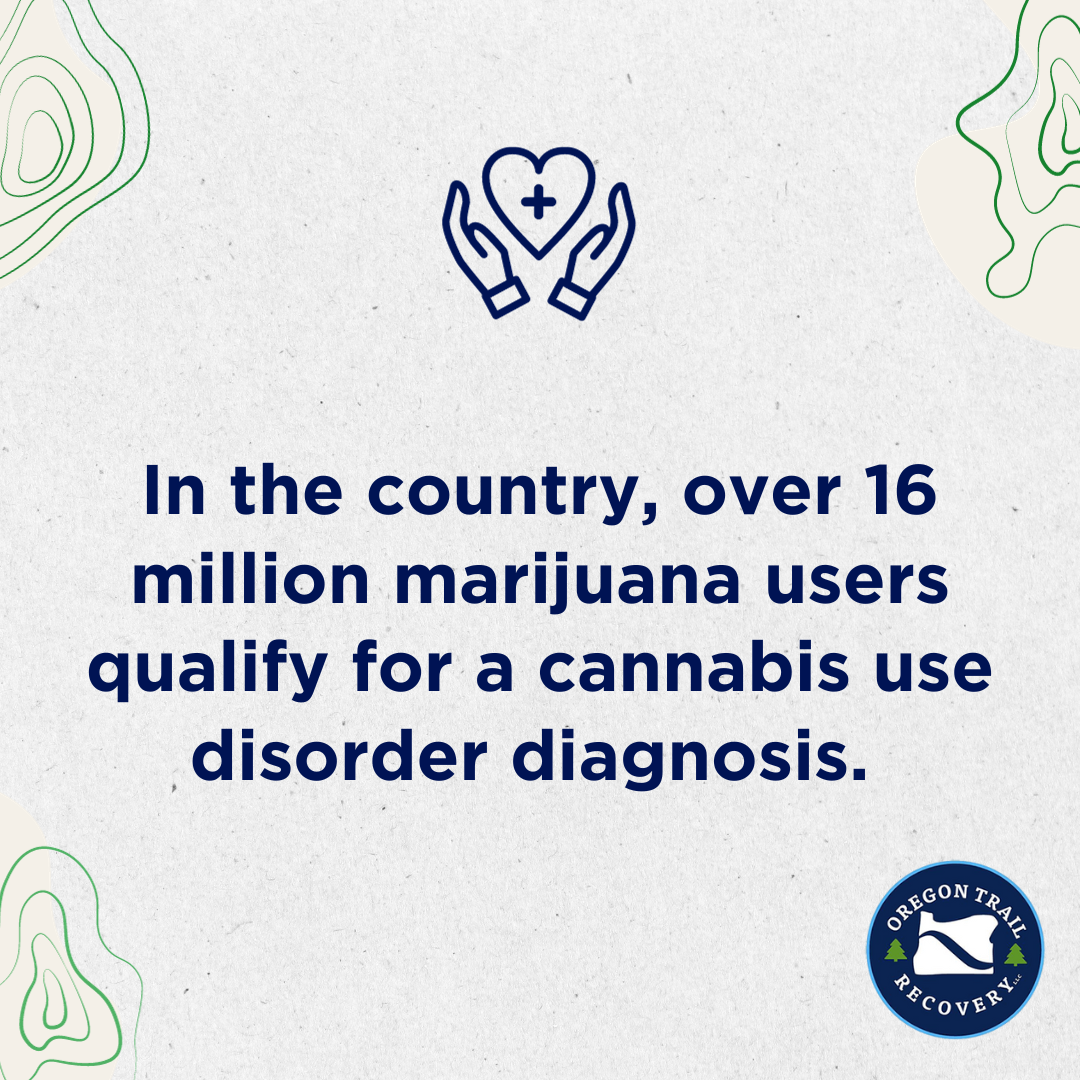
In recent years, there's been a significant shift in the country's stance on recreational marijuana as more states legalize its use. As of 2023, there are 24 states where recreational marijuana is legal. Oregon joined the list in 2015, allowing anyone at least 21 to consume it.As this type of marijuana reshapes public attitudes and usage patterns, a vital question comes up: does it hold addictive potential?In this blog, we’ll examine just that. We’ll delve into its psychological and physical impacts and the broader implications for individual users and public health.

In the US, marijuana is the most commonly used illegal drug, with nearly one in five Americans aged 12 and older using it in 2021. The history of this substance, also known as cannabis, dates back thousands of years.It was recognized for its therapeutic properties in ancient Indian, Assyrian, Greek, and Roman texts. Then, Western medicine adopted it in 1841. The 20th century saw more significant developments, including the isolation and discovery of active components found in cannabis: THC (tetrahydrocannabinol) and CBD (cannabidiol).THC is known for its psychoactive effects, which is what most users seek. It's the component responsible for the “high” associated with this substance. On the other hand, CBD is non-psychoactive and has potential therapeutic benefits. It can offer pain relief, alleviate anxiety, and reduce inflammation. Medical cannabis gained legal ground with California’s 1996 Compassionate Use Act, making it the first state in the US to allow the medical use of Marijuana. In 2012, nearly two decades after, Colorado and Washington legalized the recreational use of marijuana. Recent research has demonstrated the effectiveness of CBD in treating conditions like schizophrenia and childhood epilepsy. It signaled a renewed interest in the medical potential of cannabis.
Marijuana abuse (especially among the youth, including college students) is a topic of growing interest and concern in the context of its increasing legalization and use. But what makes marijuana addictive in the first place? THC, marijuana's primary psychoactive compound, holds the answer.THC, a component in cannabis, activates the brain's reward system, which is involved in pleasurable activities. It causes the release of dopamine in amounts higher than usual. Dopamine is a chemical linked to pleasure. High levels of dopamine can lead the brain to repeat the behavior, contributing to marijuana's addictive qualities.But while THC can induce relaxation and euphoria, it's also linked to potential risks like impaired memory and more psychological and physical impact.

As marijuana becomes more accessible and socially accepted, understanding its potential for addiction — and psychological effects — is critical. As stated, one of its main consequences is an altered reward system, which can lead to a higher likelihood of dependence and misuse. It affects how the brain responds to other forms of pleasure and reward, potentially reshaping an individual’s behavioral patterns and choices.In the country, over 16 million marijuana users qualify for a cannabis use disorder diagnosis. And almost half of them also have other mental health issues. For example, one may have marijuana use disorder and depression at the same time.Additionally, taking large doses of the drug can lead to acute psychosis, where people might have hallucinations, false beliefs, and lose their sense of self.A research report by the National Institute on Drug Abuse citing separate studies comprehensively captures other long-term psychological effects of marijuana use. According to it, marijuana exposure during crucial developmental stages can lead to long-term or even permanent changes in the brain. These include more significant lapses in memory and cognitive impairments.
Short-term physical effects of marijuana use typically include an increased heart rate, dry mouth, red eyes, impaired coordination, and delayed reaction times. Beyond its immediate impact, marijuana poses significant health risks in the long run.If you use it for a long time, you risk developing chronic coughing and bronchitis. This is a result of tar and other harmful compounds present in marijuana smoke, which you can also find in tobacco smoke.One study involving 446 marijuana smokers, tobacco smokers, and non-smokers shows that one in three marijuana and tobacco smokers experienced chronic bronchitis symptoms like coughing and wheezing.Excessive marijuana exposure can also lead to severe lung irritation and damage. Additionally, marijuana smoke is also known to contain carcinogenic compounds, increasing your likelihood of lung, mouth, and throat cancers.According to studies, fertility issues are another repercussion, with both men and women experiencing potential reproductive health impacts. All of these health risks highlight the need for awareness and caution in marijuana use.While one of the most common addiction myths you’ll hear is that medicinal and recreational marijuana are not addictive, the truth remains that physical dependency on marijuana is possible.In fact, in the US, the dependency rate among all cannabis users is around 9%. Though this rate is lower than for substances like heroin, cocaine, or alcohol — and dependency on cannabis is generally less severe — it still poses several grave consequences, as discussed.

“There is a lot of misinformation in the public sphere about cannabis and its effects on psychological health, with many assuming that this drug is safe to use with no side effects,” Dr. David Gorelick once said in a news release. He is a professor of psychiatry at the University of Maryland School of Medicine in Baltimore.He added that “it is important for physicians and the public to understand that cannabis can have addictive effects and to recognize signs and symptoms to get properly diagnosed and treated.”When exploring the effects of recreational marijuana, a vital conversation emerges around whether its use leads to addiction or simply results in habituation. One viewpoint is that regular marijuana use can alter brain function and lead to dependence. Supporters particularly note similarities in marijuana users’ brain changes to those seen in individuals addicted to alcohol or nicotine. This group also argues that such brain changes can make cessation challenging, requiring specialized addiction treatment programs. On the other hand, others suggest that marijuana leads more to habituation than addiction. This stance is based on the observation that marijuana withdrawal tends to be less intense than withdrawal from substances like alcohol or opioids.They argue that marijuana habituation is more about the formation of routine and behavioral patterns — rather than a physiological need for the substance. Meaning, it does not typically engender the severe physical dependencies seen with traditional addictive substances.

With more states legalizing marijuana for pleasure and not just medical purposes, the drug has gained a newfound momentum. It reflects a shift in societal attitudes and a growing acceptance of cannabis. However, while not as addictive as substances like opioids or alcohol, it can still cause addiction. Chronic marijuana use has both physical and psychological effects, ranging from lung issues to cognitive impairments.If you or someone you care about is seeking guidance or addiction treatment in the context of recreational marijuana use, we’re here to help. Always remember that the path toward understanding and recovery is worth taking. At Oregon Trail Recovery, we're here to walk that path with you. Reach out today.